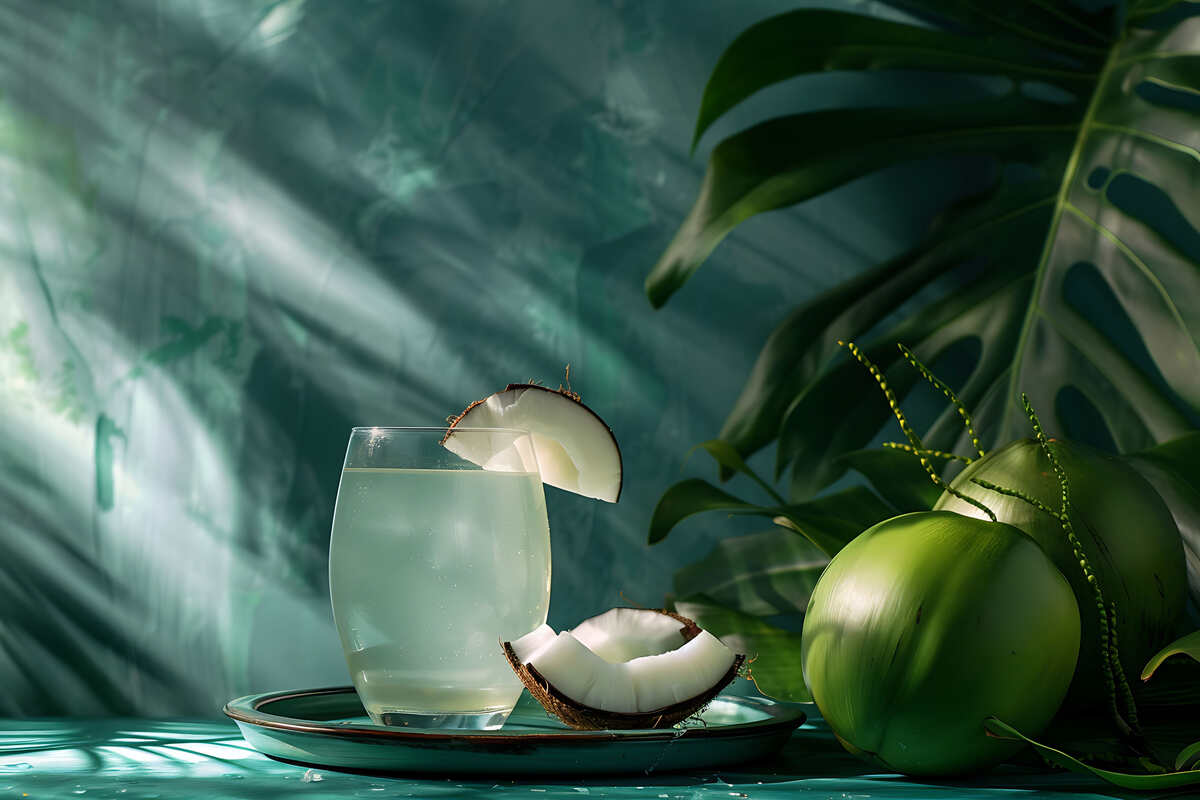Coconut Drink, often referred to as coconut juice, is the clear, refreshing liquid found within young, green coconuts. This tropical delight has captivated people worldwide, not just for its refreshing taste but also for its purported health benefits. As the liquid endosperm of the coconut, it serves as a nourishing suspension during its early development phases, evolving into a hydrating beverage cherished in many cultures.
Harvesting the Elixir
Harvesting coconut water is an art that requires precision and care. Fresh coconuts are typically harvested while still green, ensuring the liquid remains clear and abundant. A hole is carefully bored into the coconut to access the liquid and pulp. This liquid can be under slight pressure in young coconuts, occasionally resulting in a refreshing spray when first penetrated. Notably, coconuts that have fallen to the ground are susceptible to rot and damage, making timely harvesting essential for the best quality Coconut Drink.
Products and Commercialization
Coconut water’s popularity has surged, leading to various products available. In tropical countries, it is expected to see street vendors skillfully slicing open fresh coconuts with machetes, offering a chilled, natural drink to passersby. For convenience, coconut water is also sold in various forms, including aluminium cans, Tetra Paks, glass bottles, and plastic bottles. Some variants include coconut pulp or jelly, enhancing the texture and flavour.
Beyond its use as a beverage, Coconut Drink can be brewed to produce coconut vinegar, though coconut sap is more frequently used for this purpose. It is also a key ingredient in creating nata de coco, a popular jelly-like food.
Nutritional Value
Coconut Drink is lauded for its nutritional profile, which includes a modest amount of calories, essential electrolytes, and various vitamins and minerals. Per 100 grams, it provides 79 kJ (19 kcal) of energy, making it a low-calorie option for hydration. It contains 3.71 grams of carbohydrates, 0.2 grams of fat, and 0.72 grams of protein. The electrolyte content, especially potassium, calcium, and magnesium, makes it a beneficial drink for maintaining muscle function, aiding bone health, and regulating body functions.
Health Benefits
Maintain Muscle Function
Potassium, an essential mineral found in high concentrations in Coconut Drink, is vital for muscle function. An eight-ounce serving of coconut drink can contain up to 401 milligrams of potassium, significantly contributing to daily intake requirements.
Aids in Bone Health
Calcium is another crucial nutrient present in coconut water. Approximately 19.2 milligrams per cup supports bone health and helps prevent conditions like osteoporosis and low bone density.
Regulating Body Functions
Magnesium, found at about 6 milligrams per 100-milliliter serving, plays multiple roles, including protein synthesis, blood sugar regulation, and muscle and nerve function. Adequate magnesium intake is essential to prevent deficiencies that can lead to nausea, weakness, and fatigue.
Risks and Concerns
Despite its benefits, Coconut Drink is not without risks. The FDA has identified potential bacterial contamination in “raw” coconut water products. Additionally, excessive consumption can be problematic for individuals with certain health conditions. Those with chronic kidney disease must monitor their potassium intake to avoid hyperkalemia when potassium levels become dangerously high. Similarly, the sodium content, approximately 101 milligrams per eight-ounce serving, can pose risks for those with high blood pressure or those on sodium-restricted diets.
False Advertising and Commercial Issues
Coconut Drink has faced scrutiny over misleading health claims. The USA Food & Drug Administration (FDA) has warned against unsupported claims suggesting coconut water can lower cholesterol, regulate blood glucose levels, or provide significant antiviral properties. Companies like Vita Coco have faced class-action lawsuits for overstating their products’ electrolyte content and health benefits.
Medical Use in Cambodia
Historically, during the Khmer Rouge regime in Cambodia, untrained medical staff administered coconut water intravenously as a substitute for saline solution. This practice, now considered unsafe and inappropriate, highlights the dire conditions and lack of proper medical supplies during that period.
Recipes that Elevate Your Coconut Drink Experience
Classic Coconut Water Smoothie
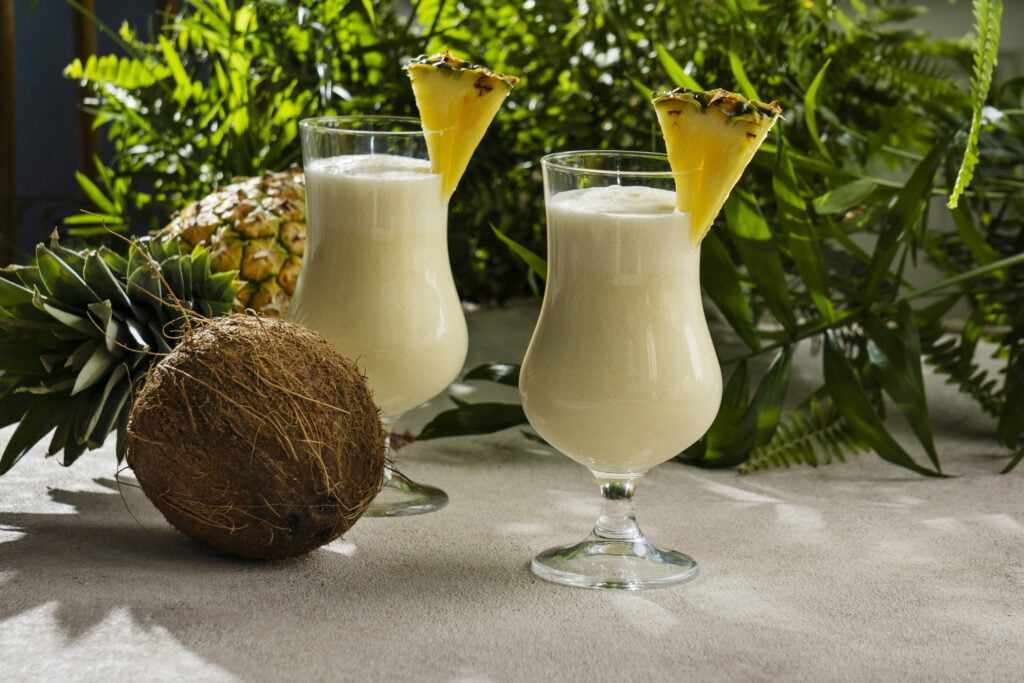
Ingredients
- 1 cup coconut water
- One banana
- 1/2 cup pineapple chunks
- 1/2 cup Greek yogurt
- Ice cubes
Instructions
- Blend all ingredients until smooth.
- Pour into a glass and enjoy immediately.
Tropical Coconut Water Lemonade
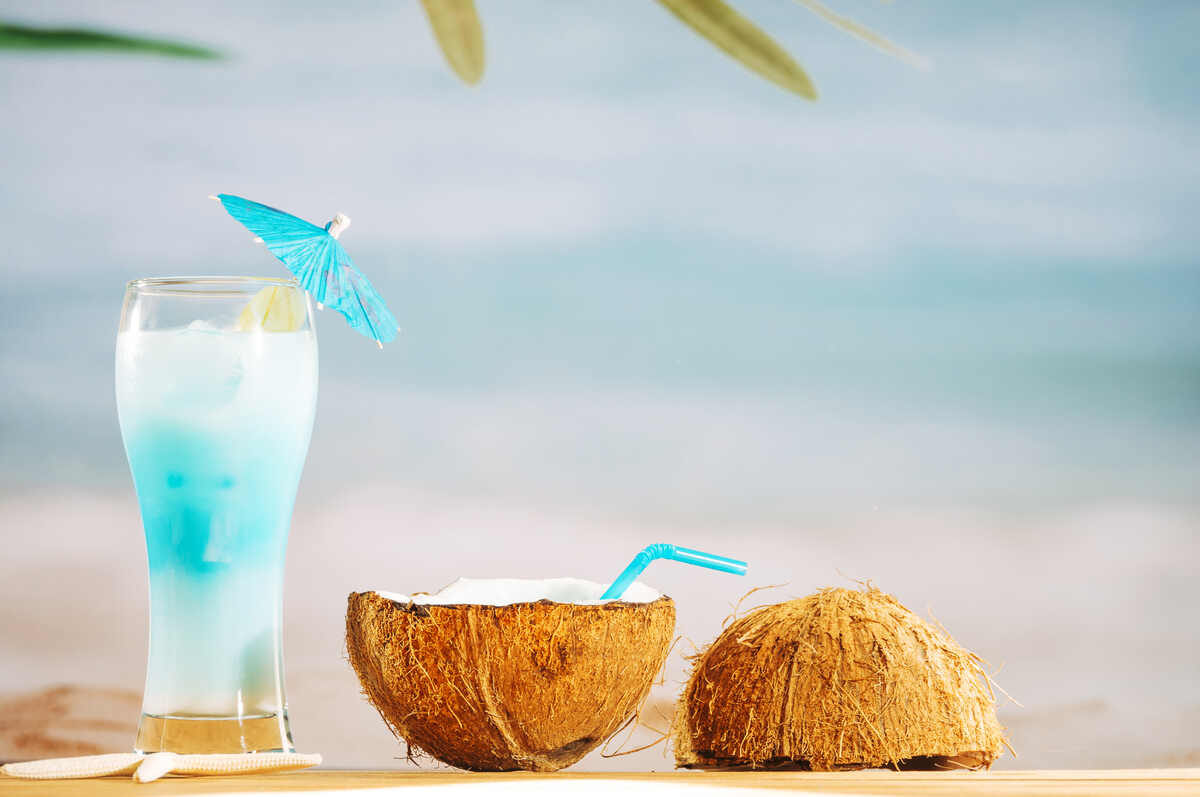
Ingredients
- 2 cups coconut water
- 1/2 cup fresh lemon juice
- 1/4 cup honey or agave syrup
- Ice cubes
- Lemon slices for garnish
Instructions
- Mix coconut water, lemon juice, and sweetener in a pitcher.
- Serve over with ice and garnish it with lemon slices.
Coconut Water and Chia Seed Hydrator
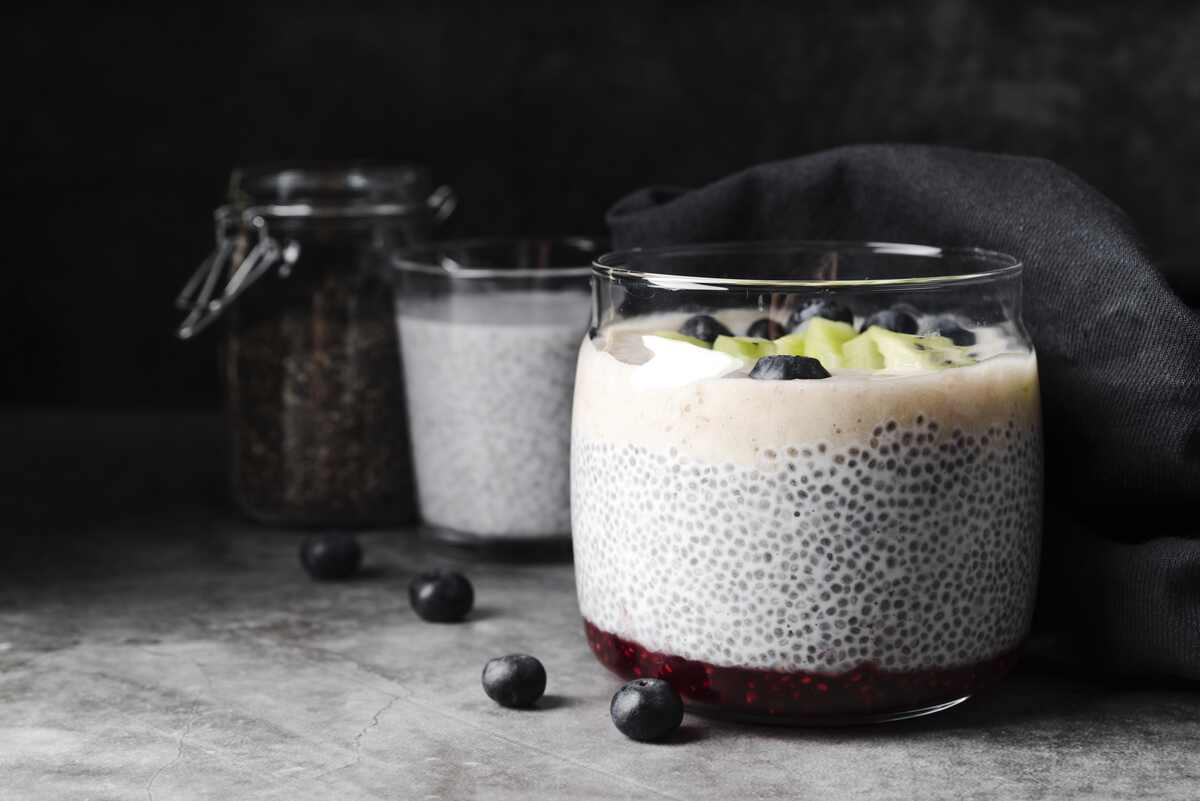
Ingredients
- 1 cup coconut water
- One tablespoon of chia seeds
- One teaspoon of honey or maple syrup
- A squeeze of lime juice
Instructions
- Mix all ingredients in a glass.
- Let it sit for 10 minutes, stirring sometimes, until the chia seeds swell.
- Enjoy chilled.
Coconut Curry
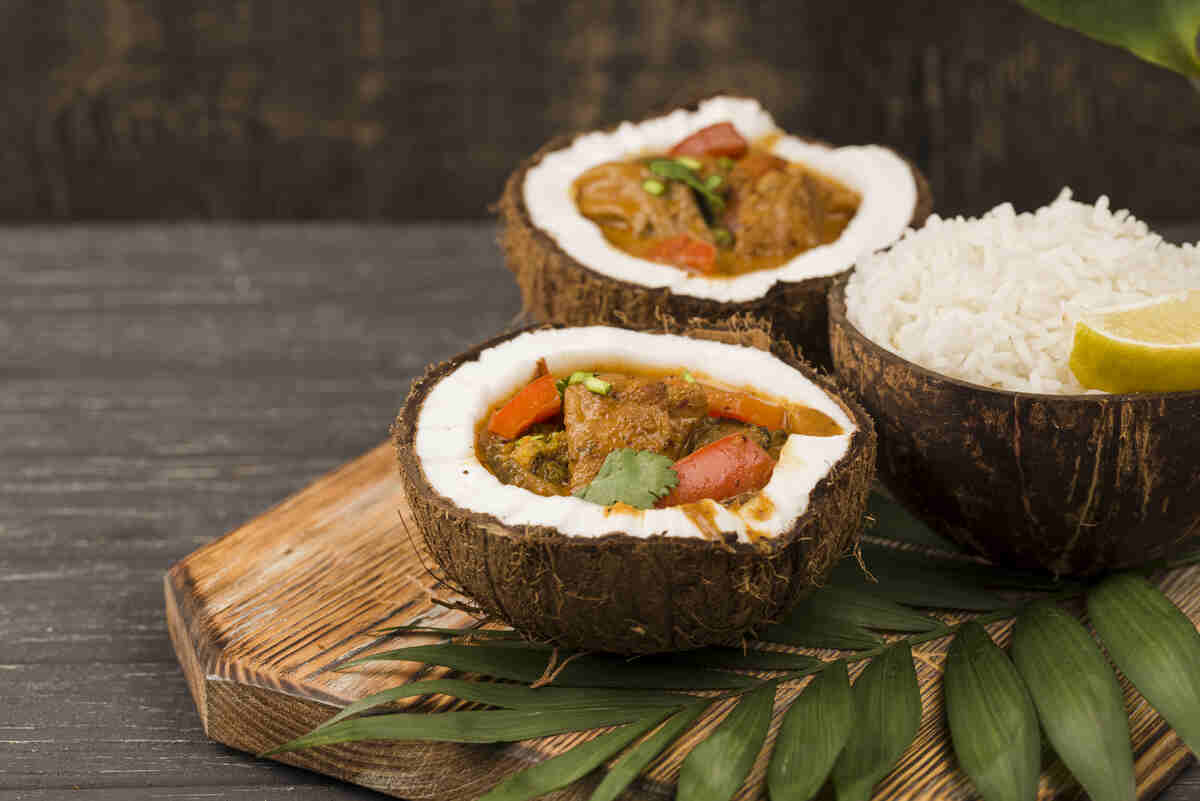
Ingredients
- 1 cup coconut water
- One can of coconut milk
- Two tablespoons of curry paste
- 1 cup chopped vegetables (carrots, bell peppers, zucchini)
- 1 cup tofu or chicken, cubed
- Fresh cilantro for garnish
Instructions
- In a large pot, heat curry paste over medium heat.
- Add coconut water and coconut milk, stirring to combine.
- Add vegetables and protein, and simmer until cooked through.
- Garnish with cilantro and serve over rice.
Coconut Water Smoothie Bowl
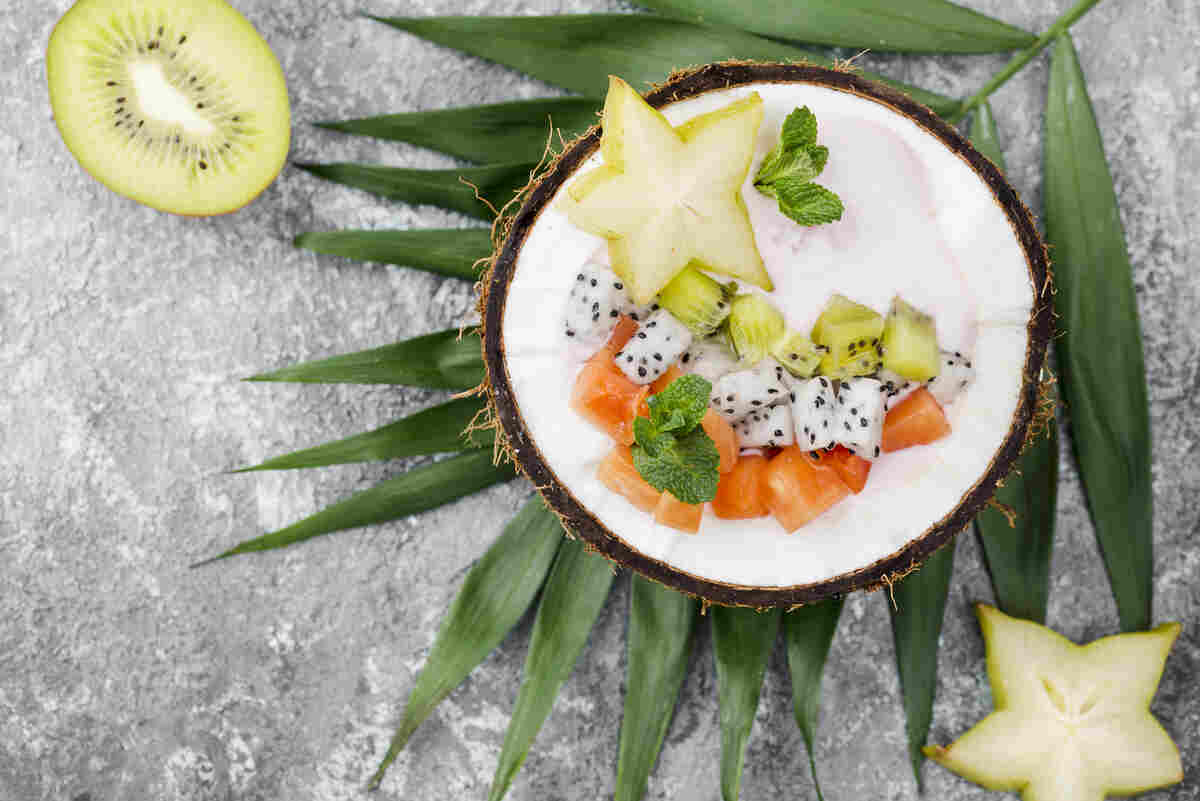
Ingredients
- 1 cup coconut water
- One banana, frozen
- 1/2 cup mixed berries, frozen
- 1/4 cup Greek yogurt
- One tablespoon of chia seeds
- Fresh fruit and granola for topping
Instructions
- Blend the coconut water, frozen banana, mixed berries, Greek yoghurt, and chia seeds until smooth and thick.
- Pour the mixture into a bowl.
- Top with fresh fruit slices and granola for added texture and flavour.
- Serve now for a refreshing and nutritious breakfast.
Coconut Water Popsicles

Ingredients
- 2 cups coconut water
- 1/2 cup fresh fruit (mango, berries, kiwi), chopped
- One tablespoon of honey or agave syrup
Instructions
- Mix the coconut water and sweetener in a jug.
- Place the chopped fruit into popsicle moulds.
- Pour the coconut water mixture over the fruit, filling each mould.
- Put popsicle sticks and freeze for at least 4 hours or until solid.
- Enjoy these hydrating and delicious popsicles on a hot day.
Coconut Water and Lime Spritzer
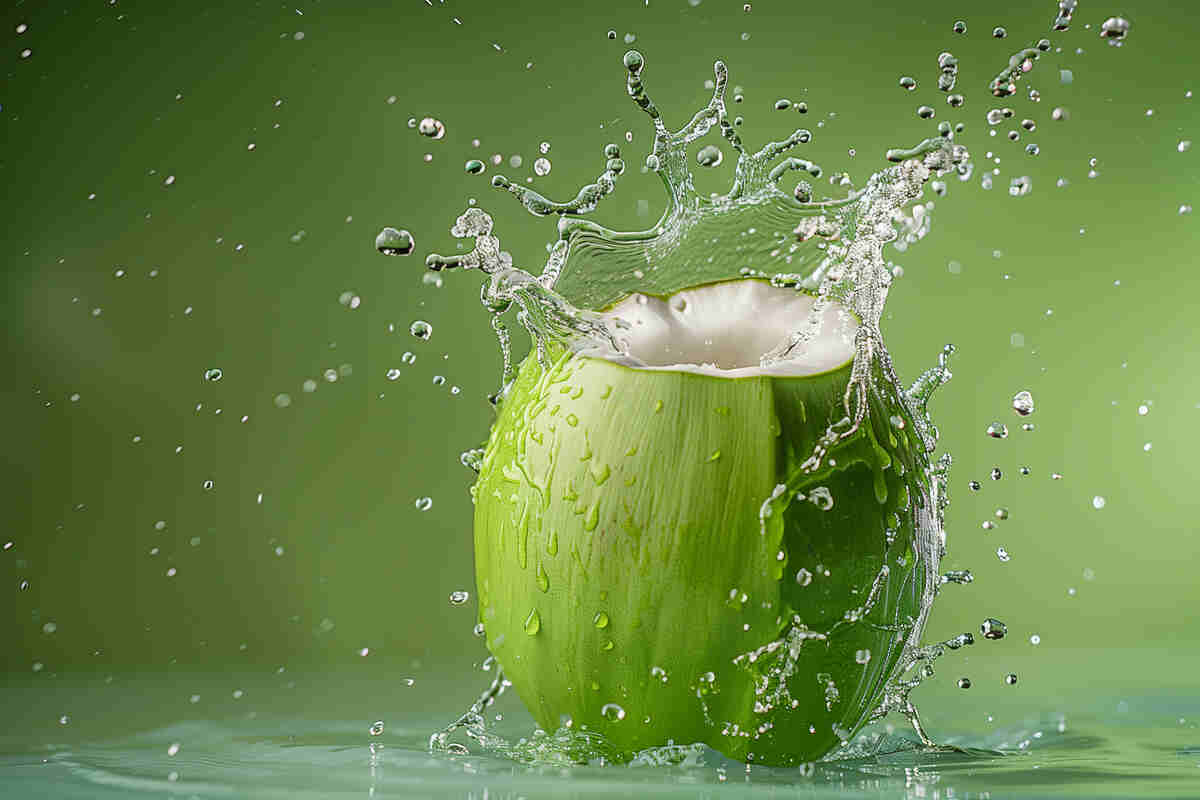
Ingredients
- 1 cup coconut water
- 1/2 cup sparkling water
- Juice of 1 lime
- Lime slices and mint leaves for garnish
- Ice cubes
Instructions
- Combine coconut water, sparkling water, and lime juice in a glass.
- Add ice cubes to chill the drink.
- Decorate it with lime slices and fresh mint leaves.
- Stir gently and serve immediately for a refreshing, fizzy treat.
Coconut Water Infused Quinoa Salad
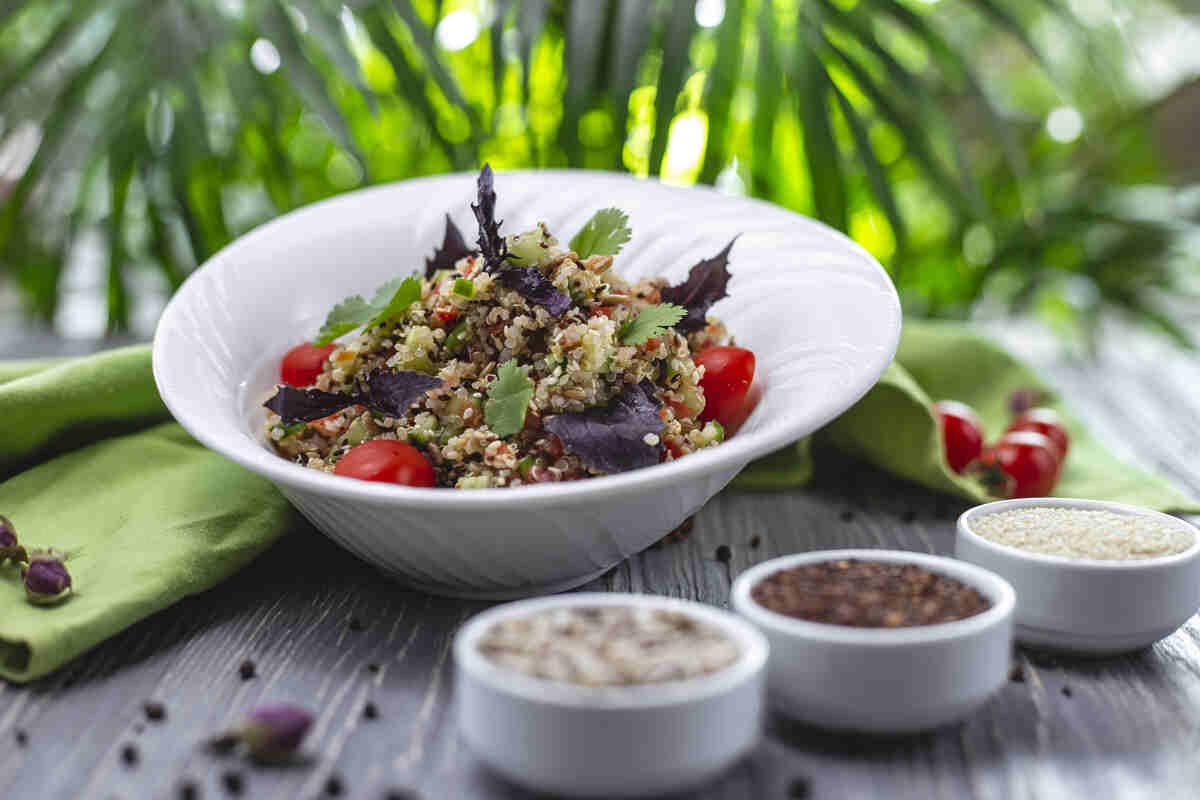
Ingredients
- 1 cup quinoa
- 2 cups coconut water
- 1/2 cup diced cucumber
- 1/2 cup cherry tomatoes, halved
- 1/4 cup red onion, finely chopped
- 1/4 cup fresh cilantro, chopped
- 1/4 cup feta cheese, crumbled
- Two tablespoons of olive oil
- Juice of 1 lemon
- Salt and pepper to taste
Instructions
- Rinse the quinoa under cold water.
- In a pot, bring the coconut water to a boil. Add quinoa, lower heat to low, cover, and simmer for about 15 minutes or until the liquid is absorbed.
- Lint the quinoa with a fork and let it cool.
- Combine the cooled quinoa, cucumber, cherry tomatoes, red onion, cilantro, and feta cheese in a large dish.
- Sweep the olive oil, lemon juice, salt, & pepper in a small bowl.
- Flow the dressing over the salad and toss to combine.
- Serve chilled as a light and refreshing meal.
Conclusion
Coconut Drink is a natural, refreshing beverage with a rich history and diverse applications. Its nutritional benefits and unique flavour make it famous for hydration and culinary experimentation. However, consumers should remain informed about potential risks and avoid falling for exaggerated health claims. Whether enjoyed straight from a freshly opened coconut or incorporated into creative recipes, Coconut Drink continues to captivate and refresh people around the globe.

